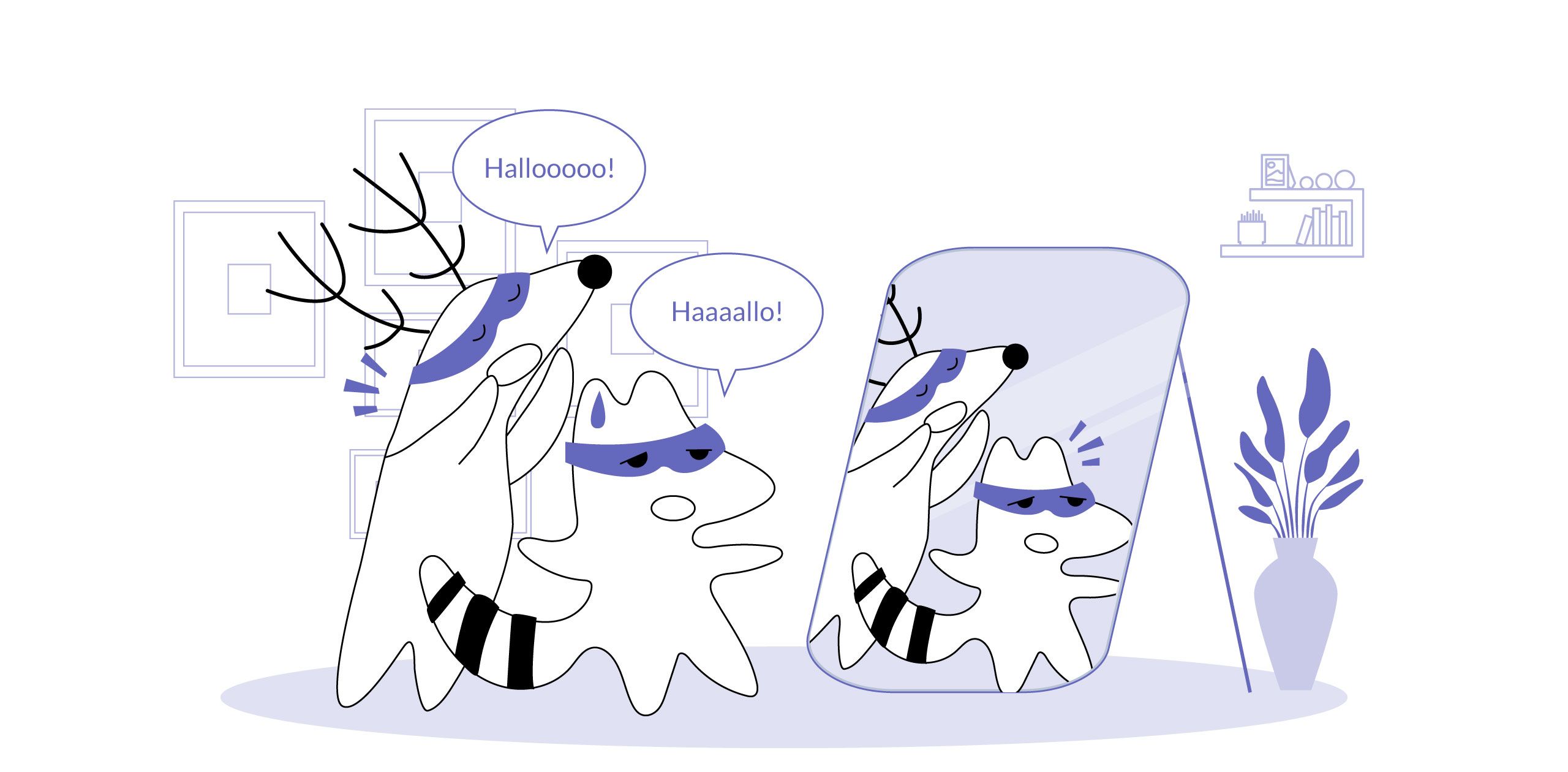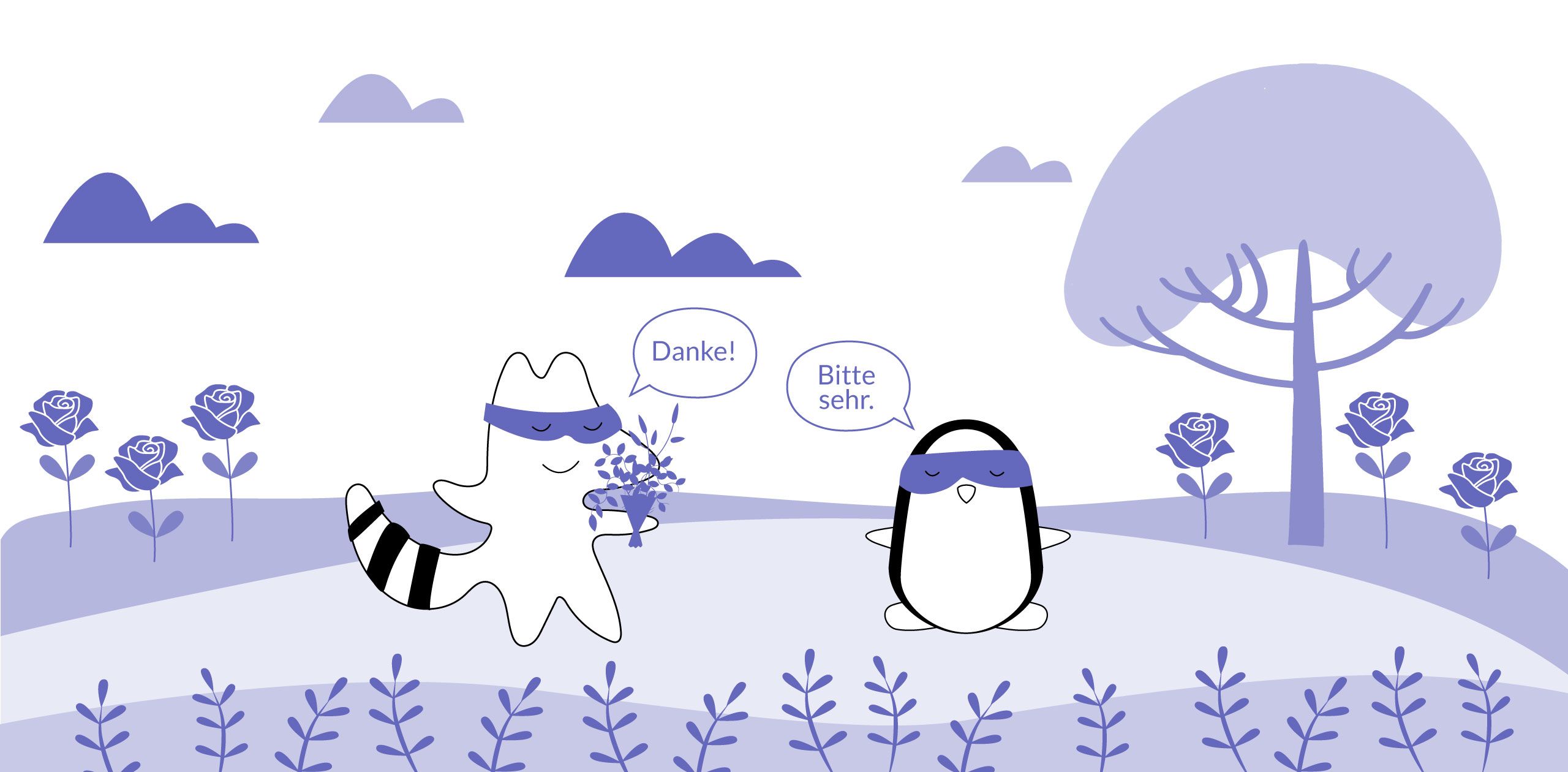
If you want to learn a foreign language, you must understand how to use the various tenses, as they are an important part of grammar. There are past, future, and present tense forms in almost every language that requitres users to conjugate verbs in sentences.
Aside from the present tense, the German language has several verb tenses for expressing actions in the future and the past. Fortunately, most of them are very similar to the English grammar system.
With this post, we want to give you a quick overview of the different German tenses and a sense of how the past, present, and future tenses look in German, how to construct them, and which helping verbs to use. Take a look:
Learn German with Langster
German Tenses: and Overview
As stated before, there are three main tenses in German: present, past, and future. The present tense is the most simple and most commonly used tense. In terms of future tenses, there are two of them - the German language allows you to express several types of future actions. You can also express the past through three different past tenses.
For some tenses, the verb itself changes, and for others, you must add an auxiliary verb. We will have a closer look at that in this article, but first, here’s a quick rundown - take a look at the German tenses and see how some of them correspond to English grammar:
| Präsens (present tense) | Perfekt (present perfect) |
| Präteritum (simple past tense) | Plusquamperfekt (past perfect) |
| Futur I (future tense) | Futur II (future perfect) |
| Präsens (present tense) | Perfekt (present perfect) |
| Präteritum (simple past tense) | Plusquamperfekt (past perfect) |
| Futur I (future tense) | Futur II (future perfect) |
The German Present Tense
The present is the most common tense in the German language and probably the easiest to learn. It is formed the same way for most regular verbs, even though you will find some exceptions. Here’s an example with the regular verb "schwimmen" (to swim):
| ich schwimme (I swim) | wir schwimmen (we swim) |
| du schwimmst (you swim, 2. person singular) | ihr schwimmt (you swim, 2. person plural) |
| er/ sie / es schwimmt (he/she/it swims) | sie schwimmen (they swim) |
| ich schwimme (I swim) | wir schwimmen (we swim) |
| du schwimmst (you swim, 2. person singular) | ihr schwimmt (you swim, 2. person plural) |
| er/ sie / es schwimmt (he/she/it swims) | sie schwimmen (they swim) |
As you can see, the root of the verb "schwimm-" does not change when the verb is conjugated. You will find the endings -e, -st, -t, -en, -t, and -en for most German verbs in the present tense. Look at another example with the regular verb "laufen" (to run):
| ich laufe (I run) | wir laufen (we run) |
| du läufst (you run, 2. person singular) | ihr lauft (you run, 2. person plural) |
| er/sie/es läuft (he/she/it runs) | sie laufen (they run) |
| ich laufe (I run) | wir laufen (we run) |
| du läufst (you run, 2. person singular) | ihr lauft (you run, 2. person plural) |
| er/sie/es läuft (he/she/it runs) | sie laufen (they run) |
As you can see, the endings are identical to those in the first example. If you memorize them, you will be able to conjugate most of the verbs in the present tense.
Nevertheless, you might have noticed that the verb's root has changed in the second example. This happens when you conjugate several German verbs known as "strong verbs" or "irregular verbs."
Some German irregular verbs are for example “schlafen” (to sleep), “essen” (to eat), and “sehen” (to see).
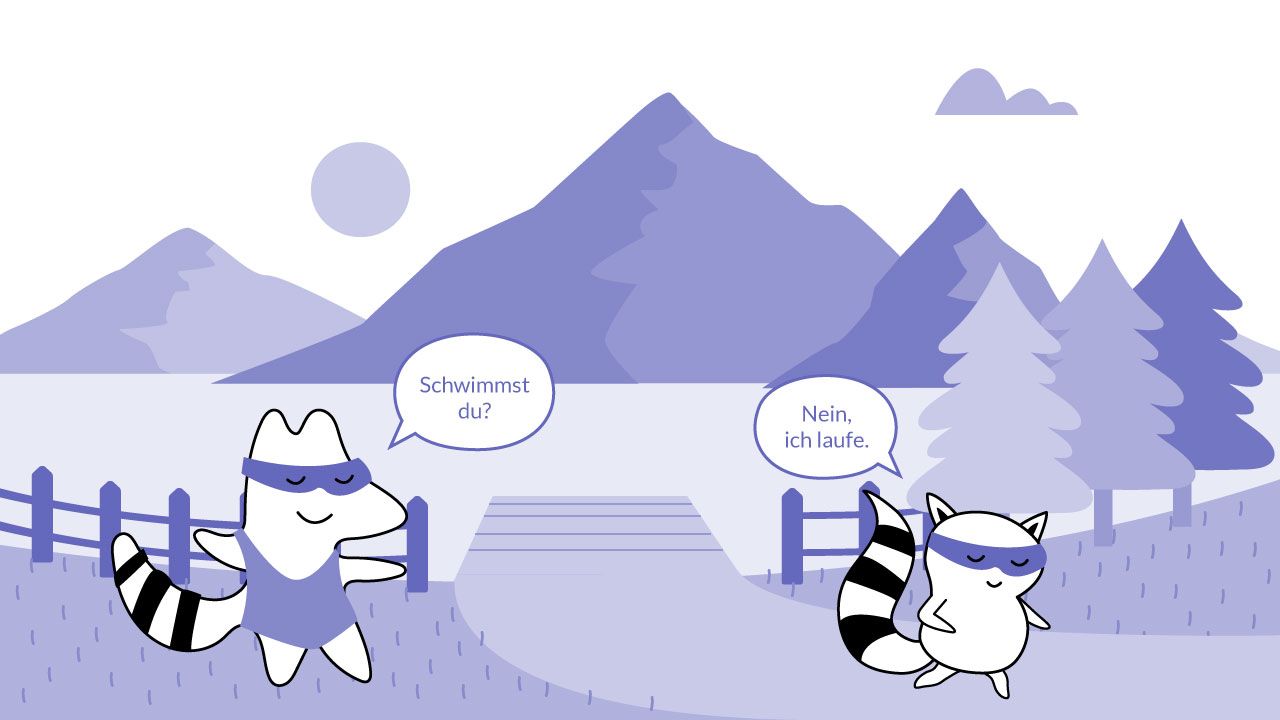
Past Tense in German
German past tenses can be a little complicated - so we will talk about them in more detail in a future article. For now, let’s go over the different past tenses in German and find out which one you should use when.
In German, like in English, there are several forms of the past tense. There is the simple past tense called "Präteritum" (sometimes called the "Imperfect tense"), the present perfect, which is "Perfekt," and the past perfect, which they call "Plusquamperfekt" in German.
Just like in English, German speakers frequently use the “Perfekt” form to describe past actions. On the other hand, you will see the "Präteritum," equivalent to the simple past, mostly in written language.
What to Know about the German Präteritum?
As previously stated, the "Präteritum" may be the same past form as the simple past - it describes actions that occurred in the past. Nevertheless, in spoken German, you will only use this past form with auxiliary and modal verbs, like for example “wollen” (to want) or “können” (to can).
Native speakers primarily use the "Präteritum" (simple past) in written German and prefer the "Perfekt" (present perfect tense) to discuss past events. This has not always been the case, but it has been changing for several decades.
When listening to Germans talk about past actions, you'll notice a few German verbs in "Präteritum" will be others in "Perfekt."
Regular and irregular verbs change differently in the German simple past tense, and there are many exceptions. Don't worry - there’s plenty of time to perfect our understanding of the German simple past. Let’s keep going for now.
What Does the German Present Perfect Tense Look like?
As we explained above, Germans mostly use the "Perfekt" when they talk about actions in the past. In this context, you will repeatedly hear the verb "haben" (to have). And you probably have no idea how often you can use this word in one sentence.
This is so because just like in English, "haben" is an auxiliary verb (or a helping verb) required to construct the German Perfekt tense. To do so, you conjugate the verb "haben" (to have) and then add the verb in its participle form. Consider the following example:
I have made > Ich habe gemacht
German
English
Ich habe einen Fehler gemacht
I have made a mistake
You can see that the present perfect structure is the same in German and in English, even though you might not know how to build the past participle of a German verb yet. As you can see in the example, the German past participle is always at the end of the phrase.
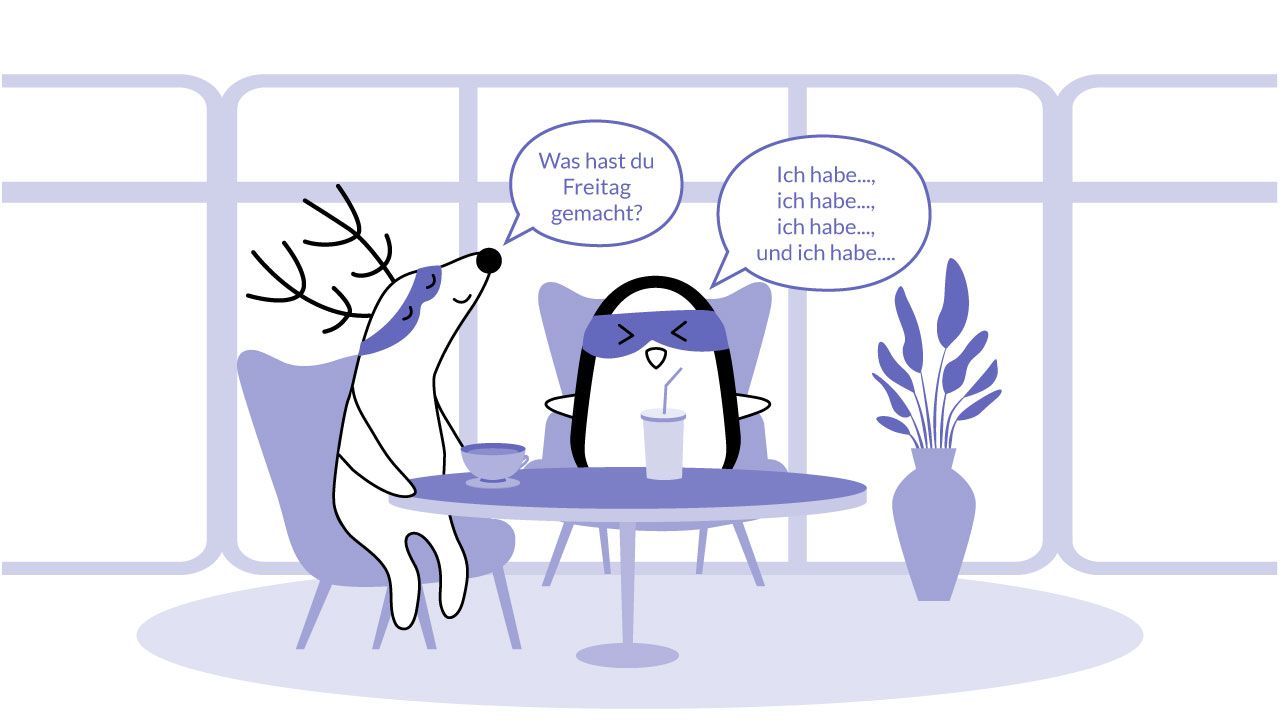
What is the "Plusquamperfekt?"
This super large and complicated German word is the equivalent to the past perfect tense in the English language. In German, you use this tense when you have already spoken about past actions in the present perfect or simple past and want to mention something that happened even before.
Imagine that with the past perfect or Plusquamperfekt, you can enter a deeper level of the past. Look at the following example:
German
English
Ich hatte das Geschenk bereits gekauft, als sie die Party absagten.
I had bought the present already when they canceled the party.
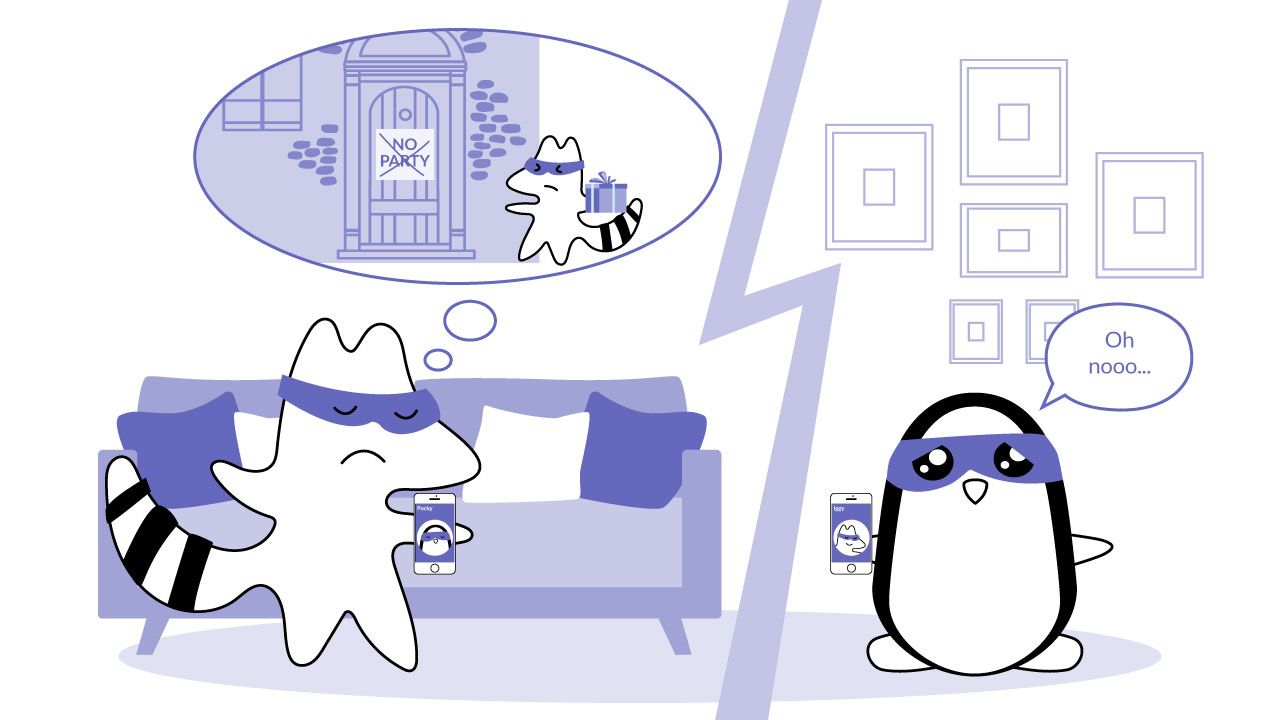
The sentence shows that two actions happened in the past, but the first action, which is buying a present, happened before the other one. You can see that the English and the German grammar work similarly here.
Like in the "Perfekt," you need the helping verb "haben" (to have) and the participle of the verb you want to use to create this tense. The only difference is that you should put the auxiliary verb in its simple past form. As we mentioned before, the participle stands at the end of the German sentence.
German Future Tenses
The last tenses we will address today are the future tenses. Like in the English language, there are two ways to talk about future actions in German. The first and most common one is the regular "future tense," which they call "Futur I" in German.
In English, you use "will" as a helping verb combined with an infinitive to express that something will happen in the future. In German, you have the same grammar structure with a helping verb and infinitive, and in place of the English "will," you use the verb "werden." An example:
German
English
Ich werde das Spiel gewinnen.
I will win the game.
You can see how similar the future tense in English and German works. The only difference is the position of the infinitive, which in the German phrase stands at the end.
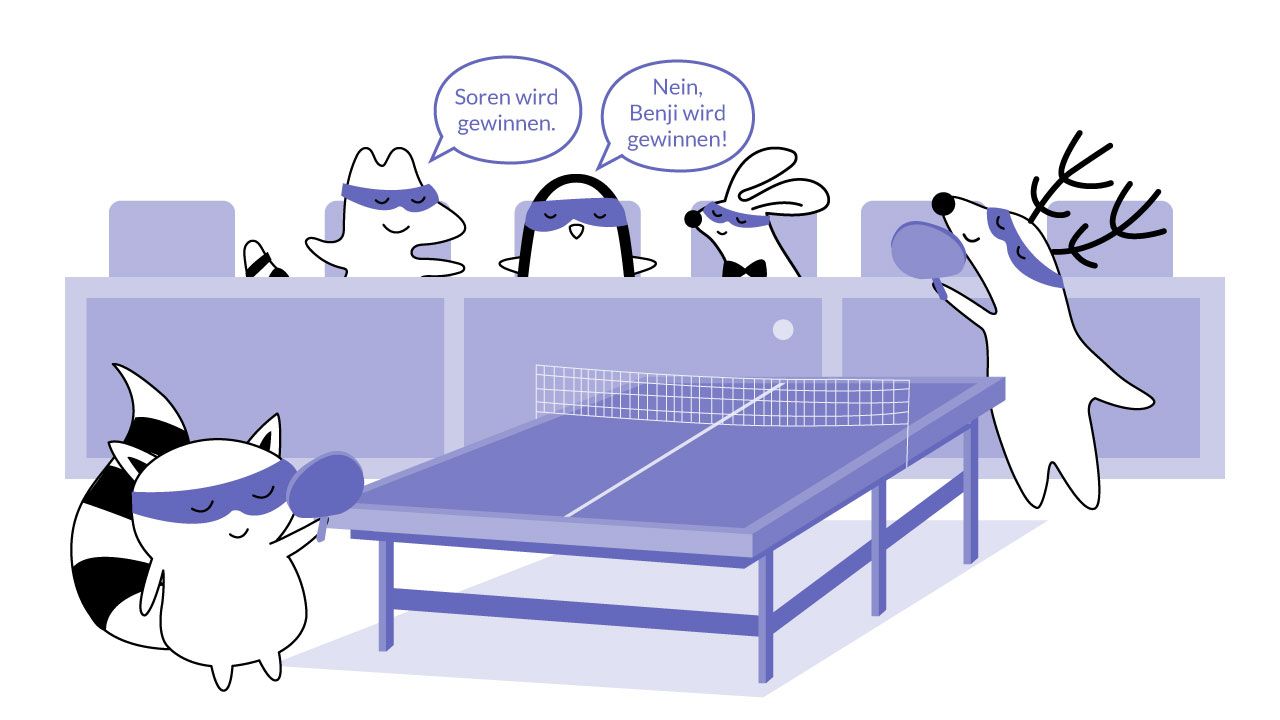
"Future Perfect" As the Second Future Tense
The second future tense is the "future perfect," called "Futur II" in German. You can use it to talk about an action that will be accomplished in the future. Here’s an example:
German
English
Ich werde das Spiel gewonnen haben.
I will have won the game.
The phrase is more complicated but still similar in German and English. Besides "werden" (will), you need the infinitive "haben" (have) and the participle of the verb that you want to talk about.
A Short Summary
We hope that now you have a basic understanding of the way German tenses work - and will have a chance to practice them soon.
Don’t hesitate to speak German more - even if you’re not fluent now, if you practice enough, you will master the tricky German grammar pretty quickly. Remember to concentrate on one tense at a time and be patient with all of the exceptions. The German simple past tense can be challenging in particular, but you'll get there.
It can help to practice with an application such as the Langster app, where you can learn German grammar and vocabulary through short stories.
We wish you the best of luck and invite you to check more articles about German on our blog.






